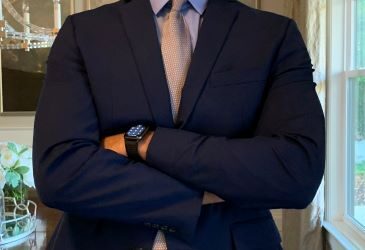Before we adopted, we had to go through a home study with a social worker. She asked us how we would tell our sons they were adopted. We asked what she recommended, and her response intrigued me. She said, “a child should never remember the day they found out they were adopted.”
It took a minute, but then I understood. Adoption should be such a part of their story and who they are, that it isn’t a big surprise or discovery. It should be something they just always knew about themselves.
I’ve been thinking about this advice as we are in the midst of Pride month. What if a child never remembered the day they told their parents they were gay? What if it was such a part of their story, that no coming out day was ever necessary? What if it wasn’t some big revelation to their family? I can’t imagine it’s a revelation to them. Is sexuality a revelation for heterosexuals?
What if sexuality were something we asked our kids about starting at the age most of us developed our first crush? What if we changed that conversation? Instead of asking, “are there any boys (or girls) you like?” we don’t mention gender. We just ask, “Is there anyone special you like?” “What’s their name?”
What if there were no wrong answer? If you are nervous about this, have a quick follow up question memorized. It could be “do you get to talk to them much?” It shifts the conversation, so you don’t pressure your child to discuss their sexuality explicitly. They are simply a child with a sweet crush they can confide to their parents.
What if we had this conversation regularly to show deeper interest in our children? We like to know their favorite colors, classes, friends and TV shows. Why not also know who is exciting their curiosity, making them nervous and causing them to wonder if their feelings are reciprocated?
What if we had an annual “Ask About Day” where we all checked in with our kids about their crushes and asked who was giving them butterflies in their bellies? Would that be helpful?
I don’t presume to know what’s best for the LGBTQ+ kids, but I do know how lonely it feels like to keep secrets about yourself. I know what it’s like to have parents who aren’t curious about you, who don’t want to know anything about you that they might find displeasing. You become a stage performer in your own home. You learn to act and behave in the way in which you are expected to. You aren’t your true self.
A very smart friend of mine explained, “Parents don’t ask, because they don’t want to know.” I understand that parents can feel apprehensive. I felt it myself every time I asked my sons, in what I hoped was an innocuous way, about their crushes. The answer could mean significant changes for your life and your future plans.
You might need to end any relationships with homophobic friends and family. You might need to find a new church. You might need to reexamine your politics. How do you manage that? It’s a lot, but we are talking about our children.
You might be thinking to yourself, “but Mary, homosexuality is a sin.” I am not your go to girl about being sinless. Right this moment, I am having a pretty sinful thought about parents who reject their children because of their sexuality. I sin every day.
My most common sin is wearing gold — yes, wearing gold. You know the bible says to not wear gold. Read yourself some Timothy and Peter. Talking about homosexuality as a sin is a moot point, because, if you read your bible, you know we all fall short. Remember the verse about “let he without sin cast the first stone?” Jesus said that.
I don’t know how you can read the bible and not imagine Jesus would not only condone a gay pride parade, but He would lead it. What made Jesus such a radical is not who He kept out but who He let in. Please don’t use Jesus as a shield for your prejudice. I can’t imagine using Jesus as a reason to reject your child.
Paren’t the only ones who can “ask about” and give kids a chance to share about themselves. Teachers, neighbors, friends and classmates could ask the same questions and make a person feel less alone.
What happens if you don’t ask? What if your child has to perform and pretend to be someone they are not, in order to meet your approval? We know the rates of addiction, homelessness, suicide, depression and anxiety rates among LGBTQ+ individuals are disproportionately high.
Several of my friends have children who are LGBTQ+. I asked one of these friends to read this and let me know her reaction to it – should I take something out or add something in. One really important point she wanted to share was, not creating a space for your child to be their fullest expression of themselves can lead to shame. Leaving them alone with their feelings sends the message there is something wrong with them. Parents have the power to shame their children or set them free.
That social worker gave us profoundly valuable advice nearly twenty-five years ago. When you have to have a big sit down to tell someone they are adopted or to reveal your sexuality to your parents, you imply a secret is being exposed, and that there is some reason to keep it secret.
What if instead of secrets we had pride?




0 Comments